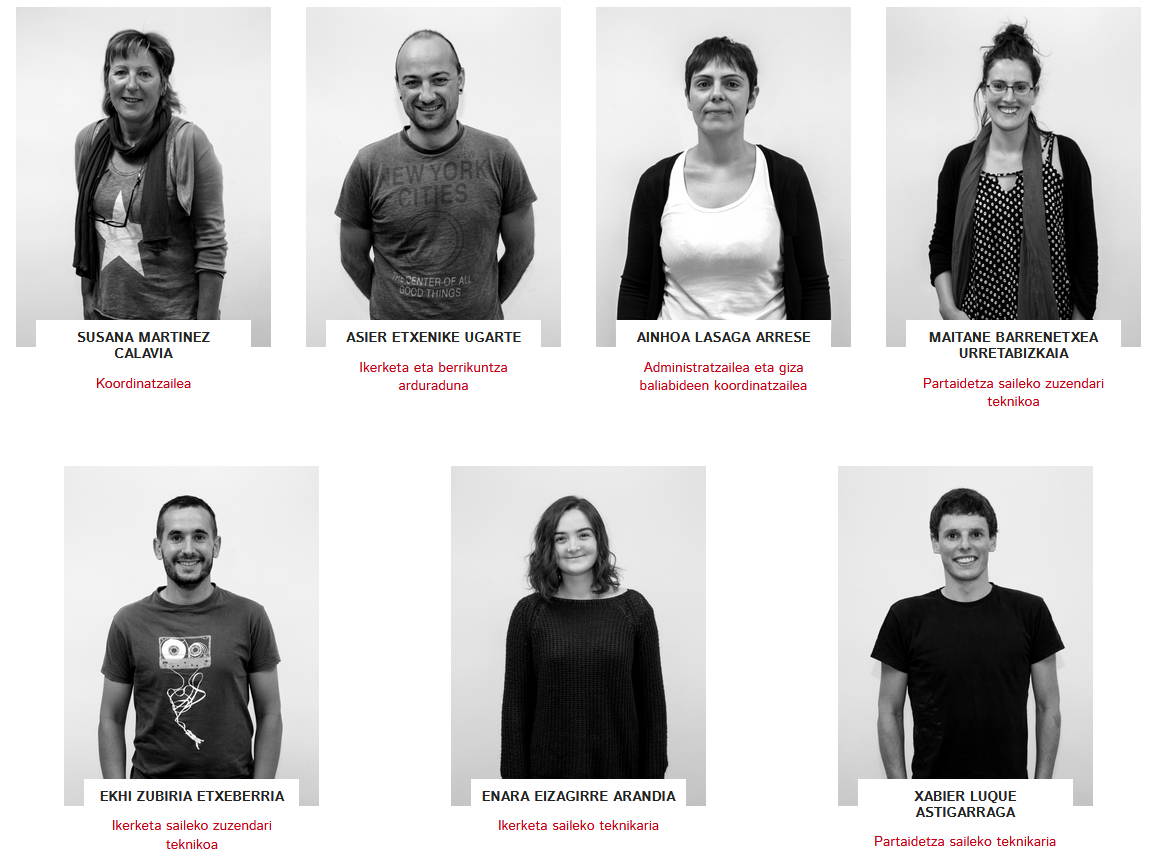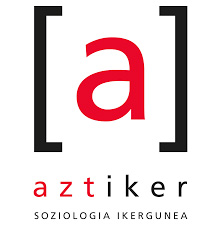Aztiker: Benefits of the distinction between the emotional and rational level in the distribution of works
- Most of the projects carried out by the Aztiker cooperative, which this year is 20 years old, have a duration of between four and six months. This often involves reviewing the workload they will have in the coming months and balancing the distribution of work among workers. In Azti, therefore, it is common for workers to reduce or increase their working time for the coming months, a flexibility that, together with that of working hours, greatly appreciates in order to reconcile it with other areas of life. Along the way, they have discovered a key: that separating personal and collective responsibility in workloads releases many knots.

"At Aztiker we review the work and the work days every three months, to see if it is balanced, and to see if any worker is getting too many hours. In addition, it is also maintained at the time of a worker's request: for example, a worker has now applied for a full day to one of four hours to meet family needs". They also make changes to increase working time: "For example, if more work has been introduced, it is proposed to two workers that are five hours away to work seven hours every two months, because if you bring someone from outside, you have to train them."
Aztiker members have explained that they manage with great flexibility the issue of workload, always taking as a priority the satisfaction of the needs and objectives of the worker for this period, taking into account the situation of the group (i.e. the needs and circumstances of the other workers) and the workloads: "Suppose a worker asks for it. 'I want to make a maximum day of 6 hours in 2021'. We try to analyze in group as soon as possible how we do it between everyone and everyone. We look at the working situation, the working day of each and we see that together we will be able to respond to the work. Otherwise, the possibility of hiring a few hours of reinforcement is discussed...".
"In this which I'm very charged: What's mine and what's Aztiker?"
In order to preserve the group's equilibrium and redistribute the work, the separation of the emotional and rational dimension is a key issue, so in the coordination meetings every three months the following scheme is followed: first the production map for the coming months is analyzed objectively, the projects to be carried out, the number of hours each project will require in each work phase, the distribution of the work and if the work is balanced, the number of hours each work day. The petitions and proposals are then followed, i.e. if the personal wishes and needs of each worker are met, or if the work has to be redistributed, or if there is no need to seek reinforcement. "But we differentiate the emotional plane from the rational, because if not, we get it wrong in the conversations and that cocktail we don't like. The explicit separation of these two dimensions has been a step, if not, workloads are valued in terms of what suits you, and we get hooked on that conversation."
The production monitoring meeting is held every 15 days and it shows whether they have been wrong in the scheduled hours, that is, whether there is a worker who is spending more hours than expected. In such cases, the Secretary shall propose to the worker the enjoyment of overtime or the temporary reduction of the day. "We know how to balance that, but there's always a streak, there's a person who's going to load. And in these cases we have been able to distinguish what is personal and what is created by Aztiker, since the personality of the person has its influence." They have set an example: "Depending on each person's personality, when we're working on a job that we like, we're often excited and we tell the customer that I don't know what we're going to do, and doing so requires a lot of staff later, something that wasn't agreed. What the worker has added and what Aztiker has forced to do, it is very easy to mix these two aspects and it is not fair to give Aztiker responsibility for the decision one has made."
In charged situations, instead of bringing the issue to the big group, they try to ask for help from a colleague and make a reflection: "To this situation, what do I do personally and therefore I am responsible for what, and on the contrary, what is Aztiker's and therefore what can I ask Aztiker to solve me? ". According to experience, "this is very necessary, it is very dangerous that individual tendencies are attempted to be collectivized or that the collective is held accountable". In our conversations, we've been able to make both plans explicit and we're learning about it."

Regulated hours with flexibility
Each worker decides their schedule, "but it is proposed, both for the work environment and to work as a team, to work in the office for at least three days and to do at least three hours in the office between 10:00 and 14:00". Whoever lives in Vitoria-Gasteiz has an agreement to work from home, "and the rest of us work at most two days a week from home. Why? Because most projects are not carried out individually, and because we have found that without direct interaction quality is lost. We have it regulated, but at the same time it is flexible."
With the ease of reducing or increasing working hours and the flexibility of working hours, they easily respond to the work adaptations that the care of the elderly and children entails: "Personally, each worker and worker live with more or less weight the care and descent of the family. They take into account and ask the worker what he asks Aztiker while he is in that situation, but with a limit. For example, if a worker has a six-hour working day and has difficulty in completing his work in the next two weeks, he is expected and is indebted to the stock exchange, which will be recovered later."
FICHE

What it does: Applied social studies and intervention.
Workers and partners: 8.
Created: 2000.
Residence: Andoain.
Contact: idazkaritza@aztiker.eus























